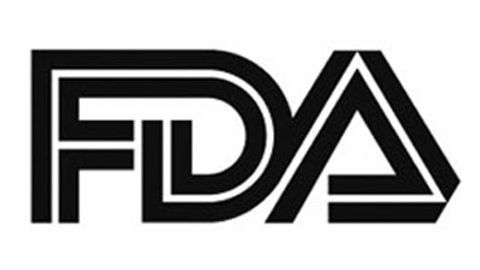FDA Grants Orphan Drug Status to BOLD-100 For the Treatment of Gastric Cancer
The FDA has granted orphan drug designation to the first-in-class ruthenium-based small molecule, BOLD-100, for the treatment of patients with gastric cancer.

The FDA has granted orphan drug designation to the first-in-class ruthenium-based small molecule, BOLD-100, for the treatment of patients with gastric cancer, according to a press release from the developer, Bold Therapeutics, Inc.
“We are pleased that the FDA granted BOLD-100 and orphan drug designation in the treatment of gastric cancer, adding to our existing orphan drug designation in pancreatic cancer. Data submitted in the orphan drug application demonstrated that BOLD-100 is potentially effective against this deadly cancer," stated Jim Pankovich, the executive vice president of clinical development at Bold Therapeutics, in a statement.
Assessment of BOLD-100 as treatment of advanced gastrointestinal cancers is ongoing in a phase 1b clinical trial (NCT04421820) in which the agent is used in combination with the FOLFOX regimen (5-fluorouracil, leucovorin, oxaliplatin). Patients must have either gastric cancer, pancreatic cancer, colorectal cancer, or cholangiocarcinoma to receive treatment with BOLD-100 in the study. In the gastric cancer cohort, specifically, patients are administered BOLD-100 at 320 mg/m2 intravenously (IV) over 30 minutes, every 2 weeks in combination with FOLFOX 420 mg/m2 IV over 30 minutes, every 2 weeks, as a low-dose option. Some patients in the study also received BOLD-100 500 mg/m2 IV over 30 minutes, every 2 weeks with FOLFOX 625 mg/m2 IV over 30 minutes, every 2 weeks as a high-dose option.
The study is primarily evaluating safety with the coprimary end points of incidence and severity of adverse events (AEs), incidence of serious AEs, incidence of dose-limiting toxicities, and incidence of clinically significant changes or abnormalities from physical examinations, electrocardiograms, vital signs, laboratory results, and ECOG performance status. The secondary end points of the study include progression-free survival, pharmacokinetics, and changes from baseline in GRP78 biomarker levels.
To be eligible for the study, patients must have histologically and/or cytologically confirmed gastrointestinal tumors that are metastatic or unresectable, and they must have received at least 1 line of chemotherapy in the metastatic setting. All patients are also required to have measurable disease per RECIST v1.1 criteria, an anticipated survival of at least 16 weeks, an ECOG performance status of 0 or 1, and adequate organ function.
Patients with gastrointestinal tumors who also had grade 2 neuropathy, had a cerebrovascular accident within the past 6 months, history or presence of central nervous system metastasis or leptomeningeal tumors, and other serious medical conditions that may interfere with treatment were excluded from the study. Those who demonstrated previous intolerance to or significant reaction secondary to fluorouracil or oxaliplatin had treatment with radiation therapy or surgery within one month before study entry, the recent history of weight loss > 10% of current body weight in the past 3 months or were recently or actively using any medication that could affect their cancer or interact with the study drug were excluded from the study.
As efficacy data from the phase 1b study of BOLD-100 are reported, Bold Therapeutics anticipates that it will file 1 or more applications to the FDA for breakthrough therapy designation consideration. The company believes that BOLD-100 has the potential to fill an unmet medical need for patients with advanced gastrointestinal cancers like gastric cancer.
The study continues to enroll patients across 6 centers in Canada, including Cross Cancer Institute, Princess Margaret Cancer Centre, Ottawa General Hospital., Juravinski Cancer, Jewish General Hospital, and Royal Victoria Hospital. The study investigators are preparing for a transition to the phase 2 portion of the trial later in the year, which will expand the study to the United State and Japan.
Reference:
FDA Grants Bold Therapeutics' BOLD-100 an orphan drug designation (ODD) in the treatment of gastric cancer. News release. Bold Therapeutics. May 11, 2021. Accessed May 11, 2021. https://prn.to/2R29tLZ